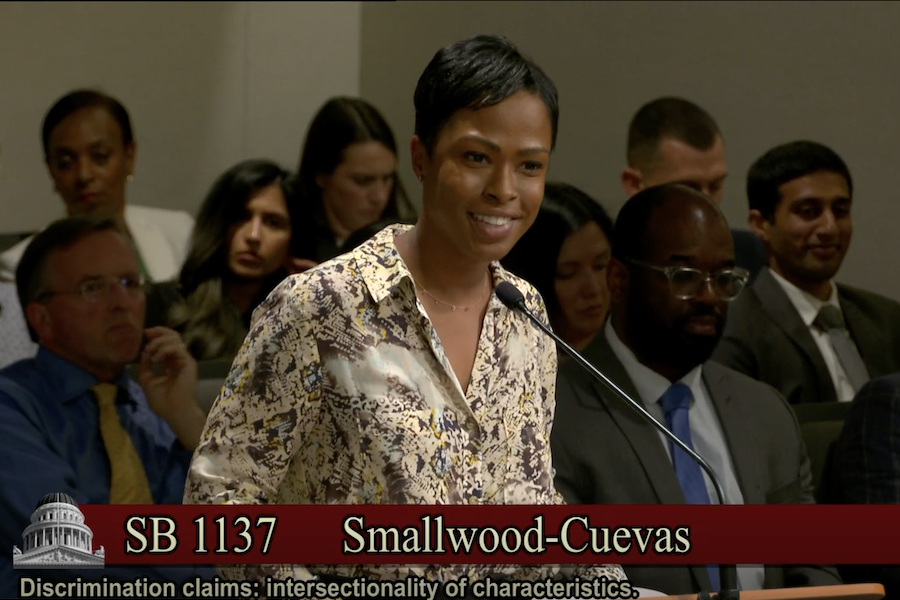
Chaya Crowder, assistant professor in the LMU Department of Political Science and International Relations, testified before the California State Senate Judiciary Committee on April 9 in support of SB 1137, which would make California the first state in the nation to recognize intersectionality within anti-discrimination laws. Crowder was invited to testify by Senator Lola Smallwood Cuevas, who represents the 28th Senate District and has introduced SB 1137 as part of a progressive bill package that addresses critical issues facing underserved communities.
During her testimony, Crowder discussed the unique nature of intersectional discrimination. She began by defining intersectionality as a form of discrimination that people experience at the intersection of multiple marginalized identities and provided context for where the term originated. It was coined in 1989 by law professor Kimberlé Crenshaw. She published a paper looking at three legal cases where different forms of discrimination interacted and overlapped and where the law seemed to forget that black women are both black and female and thus subject to discrimination because of both race, gender, and often, a combination of the two.
“Black women are often the prototypical intersectional subjects. However, there are numerous identities that intersect to create unique forms of marginalization,” explained Crowder. “People of color who are undocumented, disabled, LGBTQIA, and women often experience multiple forms of discrimination simultaneously.”
Crowder specializes in research that examines the intersection of race, gender, and political behavior. Her current book project examines how awareness of intersectional discrimination influences policy preferences. Crowder’s testimony can be viewed here (beginning at 56:47).



